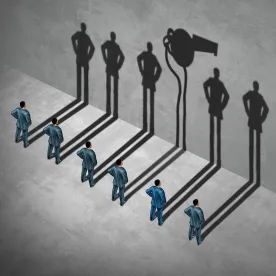On November 4, the U.S. Securities and Exchange Commission (SEC) awarded $3.2 million to four whistleblowers who analyzed complex accounting data in public filings and shared their expertise with SEC enforcement staff. On the same day, the SEC also issued five separate whistleblower award denials.
Through the SEC Whistleblower Program, individuals may qualify for whistleblower awards if they voluntarily provide the SEC with information that leads to a successful enforcement action. SEC whistleblower awards are for 10-30% of the funds collected by the government in the successful enforcement action.
Of the $3.2 million awarded to the whistleblowers, $1.6 million was jointly awarded to three whistleblowers while the other $1.6 million was awarded to a fourth whistleblower. The award order clarifies that the SEC treated the three individuals “jointly as a ‘whistleblower’ for purposes of the award determination given that they jointly submitted their tip.”
All four of the whistleblowers provided the SEC with original information by using “their specialized knowledge to evaluate and analyze complex accounting data in public filings.” The SEC notes that “[a]ccording to Commission staff, their expertise assisted the staff in understanding complex accounting principles and transactions that furthered the investigation.”
The award order clarifies that analyzing publicly available information can qualify as providing original information if “‘the whistleblower’s submission is revelatory in utilizing publicly available information in a way that goes beyond the information itself and affords the Commission with important insights or information about possible violations,’ Adopting Release for Amendments to Whistleblower Rules, Release No. 34-89963 (Sept. 23, 2020).”
The SEC further adds that the three joint whistleblowers “provided new information that caused the staff to inquire into new conduct as part of its existing investigation and provided substantial assistance during the course of the investigation, including providing additional information and participating in interviews with the staff.”
“Furthermore, [the joint whistleblowers’] contributions to the success of the Covered Action were equal in significance to the contributions made by [the fourth whistleblower], justifying an equal allocation of the recommended award percentage,” the award order continues.
The award denials issued were based on a number of different factors. Two award applicants were denied awards because their disclosures were made after the SEC had already filed the enforcement actions. In another case, the SEC denied an individual’s award applicant because the Commission reached out to interview the individual and their disclosure was thus determined to not be “voluntary.”
In a fourth case, the SEC issued an award denial because the individual did not file their award application within 90 days of the SEC posting a Notice of Covered Action for the enforcement action. The individual’s award application “was approximately seven months late,” the order states. “This ground alone renders Claimant ineligible for an award.”
In a fifth case, the SEC denied an individual’s application because it “could not consider [the claimant’s] information to be derived from [the claimant’s independent knowledge or independent analysis, as required to be “original information,” because [the claimant] obtained the information as a result of his/her association with a firm retained to perform compliance or internal audit functions.”
In August, SEC Chair Gary Gensler praised the whistleblower program, stating that it “has greatly aided the Commission’s work to protect investors.” He further added that “[i]n the years since the program was established, the SEC has used whistleblower information to obtain sanctions of over $5 billion from securities law violators, return over $1.3 billion to harmed investors, and award over $1.3 billion to whistleblowers for their service.”
Geoff Schweller also contributed to this article.




 />i
/>i

